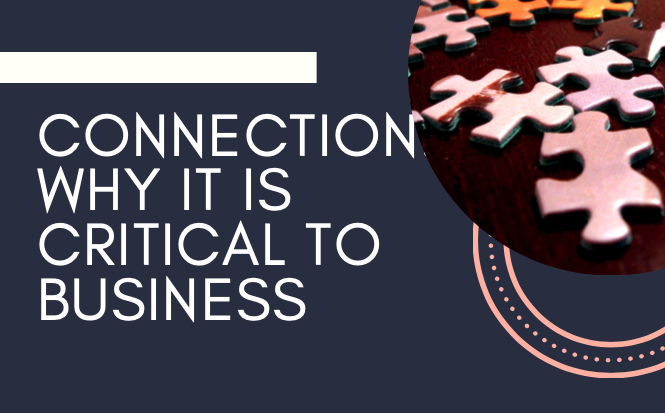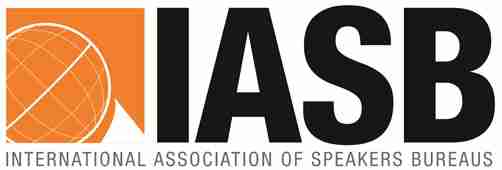- Author: Jeff Butler
- Word Count: 1489
Read the news article
Go ahead and search ‘happy employees lead to successful companies’ and you will be bombarded with consistent uplifting messages about employees and happiness (LinkedIn, Fast Company, Business Insider, Fortune). Just about every content piece promotes employee happiness benefiting organizations at large. That is why, contrary to consistent media, I couldn’t believe that Phil Rosenzweig in The Halo Effect completely disagreed.
With the article title being controversial at first glance, there were many people who work in successful organizations (speaking from a strictly revenue standpoint) where employees aren’t happy. Just look at sweat factories, crop fields, certain nursing homes, finance boiler rooms, or pyramid builders (wait those were aliens). With such well-known examples, why do business readers almost mindlessly follow common business slogans without questioning them?
Happy Employees dont lead companies
About once or twice a year, I read a book that nearly knocks me off my chair changing the way I see the business world- the most recent book being The Halo Effect. This book highlights the unfortunate reality where our perception of an organization is positively influenced by our opinions of that organization’s other related traits.
For instance, if a company is financially successful, we assume the organization’s leaders are great, but when the company’s losing money, we often think the leaders are bad, rather than looking at economic changes. Rosenzweig, a professor at Lausanne, Switzerland, and Warton Ph.D., encourages readers to question common notations and beliefs to understand what really works contributes to high business performance.
For this short article, I hope to explain in greater detail to why this business slogan is in fact a myth [happy employees create successful companies], so that you can spot your potential cognitive bias in other areas of business.
JUST BECAUSE IT FEELS RIGHT, DOESN’T MEAN IT’S TRUE
Most people believe if something feels right intuitively, then it must be right. Unfortunately, our minds do not perceive reality objectively leaving us with occasional blind spots and biases. There are many books that do a great job at showing our cognitive weak spots, (a few favorites of mine: Influence- The Psychology of Persuasion by Robert Cialdini, and Think Fast and Slow by Daniel Kahneman).
Having read both I should have been able to spot this incorrect idea before reading Halo Effect- but for some reason, I didn’t.
Problem was, I wasn’t asking the right question. You can learn a lot about your beliefs if you ask, ‘what do I gain by believing this [presented belief]?’
Let’s take the statement ‘happy employees lead to successful companies’ and break down why it could be better to believe that than the contrary. After a bit of brainstorming, I arrived at the following:
As an employee, if the employee makes sure I am happy it will make them more successful.
Different working conditions should be abolished because they don’t maximize employee happiness.
What is particularly fascinating about this straightforward exercise is that it effectively demonstrates why its’ easier for me to believe this is true than not. For instance, who wouldn’t want to work at a successful company because a top priority for them is ensuring their employees are happy?
Or more altruistically, believe that difficult working conditions will be abolished because they lead to unhappy employees because they contribute to poor financial performance. Believing that companies can be financially successful without happy employees sounds as though the faceless corporate beast is real and not a Neo-Marxist preaching. However, this statement simply means happy employees may not lead to successful employees.
Sometimes we believe things that aren’t true because it’s harder to believe the contrary.
CORRELATION IS NOT CAUSATION – WHY IT’S NOT TRUE
Let’s say we wanted to find out what top 5 things that successful companies do. By uncovering these we can assemble the formula for running a successful company and write our first New York Times Bestseller. To find this formula, the first thing most people would do is get a large sample of businesses and separate them based on financial performance.
Then, note which attributes the top company implement that the lower ones fail to do. The top company traits that the lower performing companies fail to do is your formula for building a successful company!
While this approach looks correct, this way of thinking is considered one of the most common business missteps that Rosenzweig cautions against. Mark Sanborn, a New York Times bestselling author and leadership expert pointed out the fallacy with this thinking to me in a very straightforward example:
“In a similar study”, he explains, “the researchers found that one of the key things that successful companies had were office gyms… so would getting a gym make your company successful?”
The answer to this is obviously no, but its that line of thinking leads many management and business gurus astray- does this attribute [having an office gym] cause success? Or is [having an office gym] a byproduct of success?
An even simpler way of thinking of this is trying to figure out what mindset leads to the best academic performance. After examining a sample of students and sorting them on performance, you conclude that the top students are significantly happier than the lowest-performing ones.
Hence, to get better at academics, you conclude happy is key because that CAUSES academic success. Unfortunately, students who are successful, are probably happier than their lower-performing classmates because of their academic success, not because they choose to be happy. If happiness is all it took, then Tony Robbins should be teaching at Harvard.
Tying this back to the original idea, businesses that tend to do better can afford more employee perks, less strenuous hours, and various luxuries that tend to make employees happier. However, happier employees do not lead to that financial success, the results of financial success though can make employees happier.
BUSINESS COMPLEXITY AND WHY WE CAN’T HANDLE THE NUANCE
To understand why something is true from a scientific standpoint, researchers usually use the scientific method which becomes extremely complex in business due to different levels of independence.
INDIVIDUAL DIFFERENCES
I often joke in my talks that people are remarkably bizarre, such as a Ph.D. researcher in astrophysics who is trying to find the best trajectory for a spaceship to go to Mars, can also be a Real Housewives binge-watcher. That example is symbolic of human nature- we are different and have inconsistencies.
With these inconsistencies, employees are expected to be productive, creative, and function on a day-to-day basis. On the individual level, people who attempt to invoke change usually spend money on personal development which has become a multibillion-dollar industry. Why so much money? Because it’s insanely difficult to create change.
ORGANIZATION DIFFERENCES
Now if it’s not daunting enough to create personal change, imagine trying to create that change across an entire organization where each person is interdependent on one another in an organizational hierarchy.
MACROECONOMIC DIFFERENCES
Businesses operate within an economy, that changes and fluctuates over time. What that means is something that worked in business one year, might not nearly have the same impact as another. With an economy continuing to change at an exponential rate, it becomes THAT much more difficult to isolate variables and say, “X causes y” (causation). In fact, it’s impossible to test 2 businesses side by side, because they take up 2 different positions in a market. A company could simply fail because the economy changes- nothing else.
With three levels of complexity: individual, organizational, and economic forces understanding what really makes a company successful is an immensely difficult question that perplexes even the brightest thinkers.
WHERE DO WE GO FROM HERE?
Make sure to not misconstrue that just because something [in this case an organization] is doing well [financially] that the other parts of the business are performing the same. Remember, correlation does not always mean causation.
About 20 years ago, Alan Weiss, a popular business consultant author, was fired by W Clement Stone who, at the time, had 450 million dollars in the bank. Stone wanted to sell a ‘positive mental attitude’ approach to new insurance agents because Stone believe ‘that is what gets money in the bank’. After hearing this idea, Weiss candidly pointed out, “you [Stone] have a positive mental attitude because you have 450 million dollars in the bank. Everyone would have a positive mental attitude if they had 450 million dollars in the bank.”
Jeff Butler Internationally respected speaker and consultant, Jeff Butler helps bridge generational gaps between Millennials and companies looking for their talent and patronage. Butler has quickly built his reputation as a memorable presenter with tangible solutions for attracting, retaining, and engaging Millennials as employees and customers. Within just the past three years, he has spoken at two TEDx events and multiple Fortune 500 companies such as Google, Amazon, and LinkedIn.
Contact us at Speakers Inc and view WeSpeak Global
Further articles you may enjoy:
- (45)
Inspiring Leadership: A Deep Dive into the Top Military Speakers in North America Top Military Speakers possess a unique ability to captivate audiences with their stories of leadership, resilience, and dedication to a greater cause. In North America, a diverse array of military leaders, veterans, and experts take the stage to share their insights, experiences, […]
- February 1, 2024
- (17)
Keynote Speakers Las Vegas: Elevate Your Event with Premier Talent Las Vegas, renowned as the Entertainment Capital of the World, is not just about glittering casinos and dazzling shows; it’s also a hub for top-tier talent that can elevate any conference or special event. When it comes to booking Keynote Speakers Las Vegas, conference emcees, […]
- April 17, 2024
- (3)
I recently stayed at a five-star hotel and found a major marketing problem lurking in the wardrobe in my room and then realised everything you do is marketing Upon check-in I was welcomed enthusiastically, and my membership status recognised with a room upgrade. I was even presented with a welcome gift to thank me […]
- January 16, 2023
- (11)
Connection is even more crucial now in the ‘time of COVID’! This guide is for leaders or parents or any human! Humans not only die when they feel lonely, isolated, alone or that they don’t belong, but those conditions are the source of almost every mental health problem we experience. It is imperative we stay connected – […]
- June 27, 2023
- (4)
Elevating Events: The Role of a Conference Emcee in San Diego and Beyond Introduction: In the dynamic landscape of conferences and events, the significance of a skilled emcee cannot be overstated. San Diego, known for its vibrant culture and diverse gatherings, is home to some of the best Conference Emcee in San Diego in California. […]
- February 23, 2024
- (30)
Imagine sitting down for six hours of back-to-back college final exams for nine days in a row with Mental strategies. That’s what playing in a professional chess tournament is like, according to chess grandmaster Maurice Ashley. The only difference is in chess, “the finals fight back,” Ashley tells CNBC Make It. And no matter how […]
- December 15, 2023
- (45)
Looking to motivate a group of employees, students, or even donors? Speakers Inc has a wide selection of New York Motivational Speakers that you can book for any event: business functions, school assemblies, graduations, charitable fundraisers, and more. Find one in New York today! New York City is one of the biggest tourist destinations in the […]
- December 20, 2022
- (4)
BEING MINDFUL OF MINDSETS and The Power of a Growth Mindset by Grant Driver In July 2019, I experienced one of the most significant and yet most daunting moments of my career as a professional speaker. I had been invited by Discovery Healthcare to present a 3-hour workshop to thirty Neurosurgeons on my research into […]
- January 23, 2023
No results available











